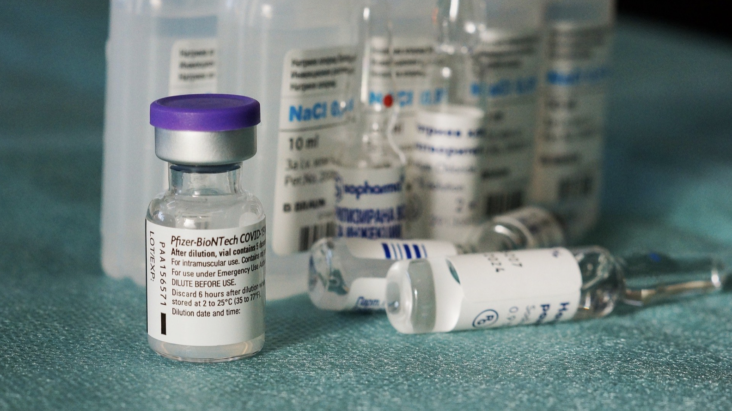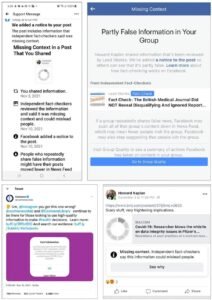
Last year, India’s COVID-19 Subject Expert Committee (SEC) reviewed the data presented by Pfizer during a meeting. The committee did not recommend the Pfizer vaccine due to serious adverse events reported abroad and the companies’ lack of safety and immunogenicity studies in the Indian population.
The local trial is a standard procedure imposed in India when a new vaccine is available to determine its safety and generate an immune response in its citizens.
TRENDING: CDC Casually Admits Covid Nose Swabs Ended Up in a Lab for Genomic Sequencing Analysis
The decision would affect Pfizer COVID-19 vaccine distribution as it will not be available for purchase in India and China, two of the most populous countries in the world.
Unlike other companies conducting small studies in India for foreign-developed vaccines, Pfizer had sought an exception citing approvals it had received elsewhere based on trials done in countries such as the United States and Germany.
Indian health officials say they generally ask for so-called bridging trials to determine if a vaccine is safe and generates an immune response in its citizens. There are, however, provisions under India’s rules to waive such trials in certain conditions.
The U.S. company, which was the first drugmaker to seek emergency approval in India for its vaccine developed with Germany’s BioNTech, made the withdrawal decision after a meeting with India’s Central Drugs Standard Control Organisation (CDSCO) on Wednesday.
The drug regulator said on its website its experts did not recommend the vaccine because of side effects reported abroad were still being investigated. It also said Pfizer had not proposed any plan to generate safety and immunogenicity data in India.
“Based on the deliberations at the meeting and our understanding of additional information that the regulator may need, the company has decided to withdraw its application at this time,” Pfizer said in a statement.
“Pfizer will continue to engage with the authority and re-submit its approval request with additional information as it becomes available in the near future.”
Pfizer had sought authorisation for its vaccine in India late last year, but the government in January approved two much cheaper shots – one from Oxford University/AstraZeneca and another developed in India by Bharat Biotech with the Indian Council of Medical Research.
Both companies had applied for approval of their vaccines after Pfizer, and their trials are ongoing in India. Local company Dr. Reddy’s Laboratories Ltd is running trials for Russia’s Sputnik V vaccine, which is expected to be approved this month or next.
India has now approved nine vaccines excluding Pfizer, three of which have been developed in India. It’s currently using only three vaccines, Covishield, Covaxin by Indian firm Bharat Biotech and Sputnik V.
Last year, India’s COVID-19 Subject Expert Committee (SEC) reviewed the data presented by Pfizer during a meeting. The committee did not recommend the Pfizer vaccine due to serious adverse events reported abroad and the companies’ lack of safety and immunogenicity studies in the Indian population.
The local trial is a standard procedure imposed in India when a new vaccine is available to determine its safety and generate an immune response in its citizens.
TRENDING: CDC Casually Admits Covid Nose Swabs Ended Up in a Lab for Genomic Sequencing Analysis
The decision would affect Pfizer COVID-19 vaccine distribution as it will not be available for purchase in India and China, two of the most populous countries in the world.
More from Reuters:
Unlike other companies conducting small studies in India for foreign-developed vaccines, Pfizer had sought an exception citing approvals it had received elsewhere based on trials done in countries such as the United States and Germany.
Indian health officials say they generally ask for so-called bridging trials to determine if a vaccine is safe and generates an immune response in its citizens. There are, however, provisions under India’s rules to waive such trials in certain conditions.
The U.S. company, which was the first drugmaker to seek emergency approval in India for its vaccine developed with Germany’s BioNTech, made the withdrawal decision after a meeting with India’s Central Drugs Standard Control Organisation (CDSCO) on Wednesday.
The drug regulator said on its website its experts did not recommend the vaccine because of side effects reported abroad were still being investigated. It also said Pfizer had not proposed any plan to generate safety and immunogenicity data in India.
“Based on the deliberations at the meeting and our understanding of additional information that the regulator may need, the company has decided to withdraw its application at this time,” Pfizer said in a statement.
“Pfizer will continue to engage with the authority and re-submit its approval request with additional information as it becomes available in the near future.”
Pfizer had sought authorisation for its vaccine in India late last year, but the government in January approved two much cheaper shots – one from Oxford University/AstraZeneca and another developed in India by Bharat Biotech with the Indian Council of Medical Research.
Both companies had applied for approval of their vaccines after Pfizer, and their trials are ongoing in India. Local company Dr. Reddy’s Laboratories Ltd is running trials for Russia’s Sputnik V vaccine, which is expected to be approved this month or next.
India has now approved nine vaccines excluding Pfizer, three of which have been developed in India. It’s currently using only three vaccines, Covishield, Covaxin by Indian firm Bharat Biotech and Sputnik V.
Corbevax vaccine
- Covaxin vaccine
- Covishield vaccine
- Johnson & Johnson
- Moderna vaccine
- Novavax vaccine
- Sputnik Light vaccine
- Sputnik V vaccine
- Zydus Cadila vaccine




